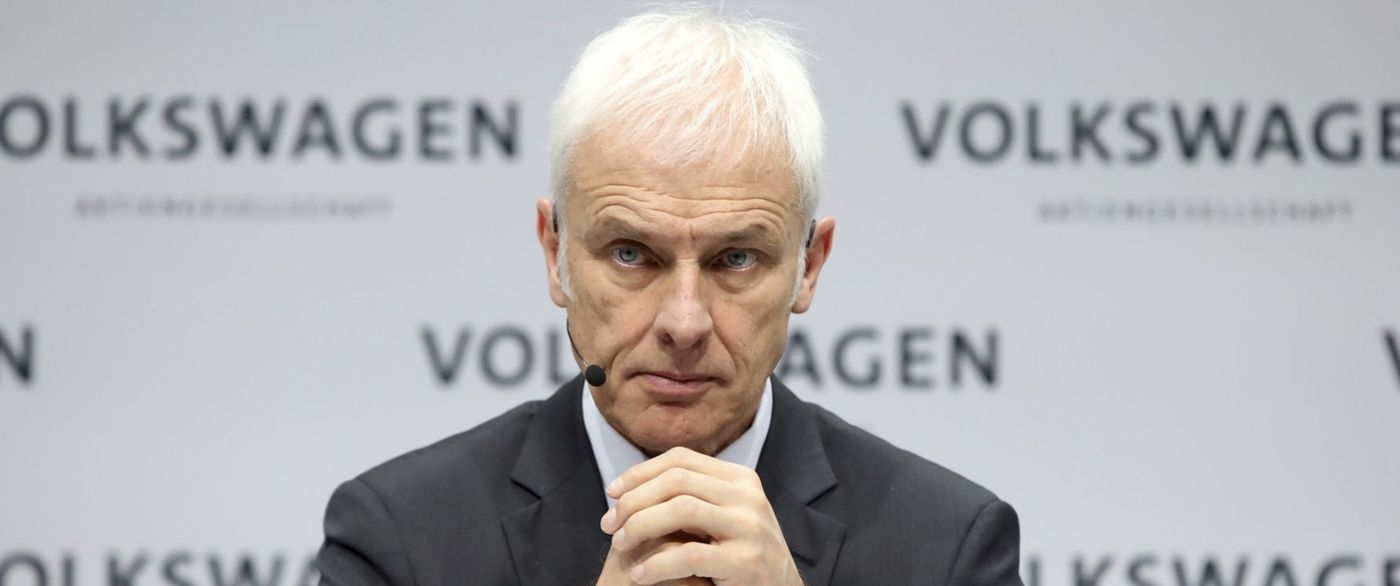Volkswagen’s legacy
April 13, 2018 | Expert Insights

The CEO of Volkswagen, Matthias Müller, has stepped down amidst the escalating controversy regarding emission fuel. He will be replaced by Brand Chief Herbert Diess.
Background
Volkswagen, shortened to VW, is a German automaker founded on May 28, 1937 by the German Labour Front and headquartered in Wolfsburg. It is the flagship marque of the Volkswagen Group, the largest automaker by worldwide sales in 2016.
In 2015, US’ Environmental Protection Agency (EPA) issued a notice of violation of the Clean Air Act to German automaker Volkswagen Group. The automaker was accused of flouting rules for nearly 7 years in the region. VW had reportedly programmed a turbocharged direct injection. This enabled the diesel engines to activate emissions controls only during laboratory emissions testing. This programming was found from models that were introduced in 2009 to 2015. Reportedly, 11 million such cars were deployed across the world and 500,000 in the United States alone. The scandal that unfolded resulted in the resignation of then CEO Martin Winterkorn. A number of the company’s top executives stepped down as well as further details began to emerge.
There is growing concern that the performance of vehicles in labs are different from the performance in the real world. A study noted that diesel cars and trucks from 10 countries produced 50% more nitrogen oxide emissions than lab tests showed.
In August 2017, Volkswagen AG’s former engineer James Liang was sentenced to 40 months in prison by a federal judge in the US. He was central to the company’s scheme in developing cars that could evade US pollution rules
Analysis
The scandal’s scope expanded when Oliver Schmidt, a former Volkswagen executive was sentenced to seven years in prison by a US court. He has also been fined $400,000 for having admitted he helped the firm evade clean-air laws. Schmidt, a German national, was sent to the US in 2015 but failed to disclose the existence of the software.
Now, amid the controversy, the company has announced that its CEO Matthias Müller would be stepping down. Her served in the capacity at Volkswagen AG from 25th September 2015 to 12th April 2018. Prior to joining the Volkswagen, he was CEO of its subsidiary, Porsche. He was appointed CEO of Volkswagen AG following the Volkswagen emissions scandal that led to the resignation of Martin Winterkorn. "Matthias Müller has done outstanding work for the Volkswagen Group," VW supervisory board chairman Hans Dieter Pötsch said in the statement. Müller led VW through the "greatest challenge in its history," realigned the German automaker's strategy, and made changes to the company's culture, he added. "For that, he is due the thanks of the entire Company," he said.
The company has announced that the new CEO will be Herbert Diess. “The Volkswagen Group’s goal is and remains to align the Company and its brands with future needs, to safeguard its position among the leaders of the international automotive industry with innovativeness and profitability and to be instrumental in shaping tomorrow’s personal mobility with the strength of our Group brands. Herbert Diess is the right manager to do that. In realigning the Volkswagen brand, he has demonstrated to impressive effect the speed and rigor with which he can implement radical transformation processes. This accomplishment makes him predestined to fully implement our Strategy 2025 in the decisive years that are now to follow,” said Pötsch.
Counterpoint
Volkswagen is not the only company implicated in the emissions’ controversy. Companies like Takata, Mercedes Benz, BMW, Daimler have all been implicated. Some experts note that extreme competition as well as stringent rules have led to a culture of cover-up among manufacturing companies.
Assessment
Our assessment is that it’s extremely important for all companies especially in the manufacturing sector, to ensure that the supply chain pedigree of all components and parts that are outsourced from OEM vendors are thoroughly checked for every batch. Economic integration across boundaries have helped companies adopt some of the best practices in the world like outsourcing, lean manufacturing and just in time inventory. While these operations have minimized cost and enabled companies to focus on core competencies, they have also stretched enterprises to their breaking point. Without realizing, a company’s best intention to become fiercely competitive can leave it vulnerable. This scandal may become part of Volkswagen’s tainted legacy.








Comments